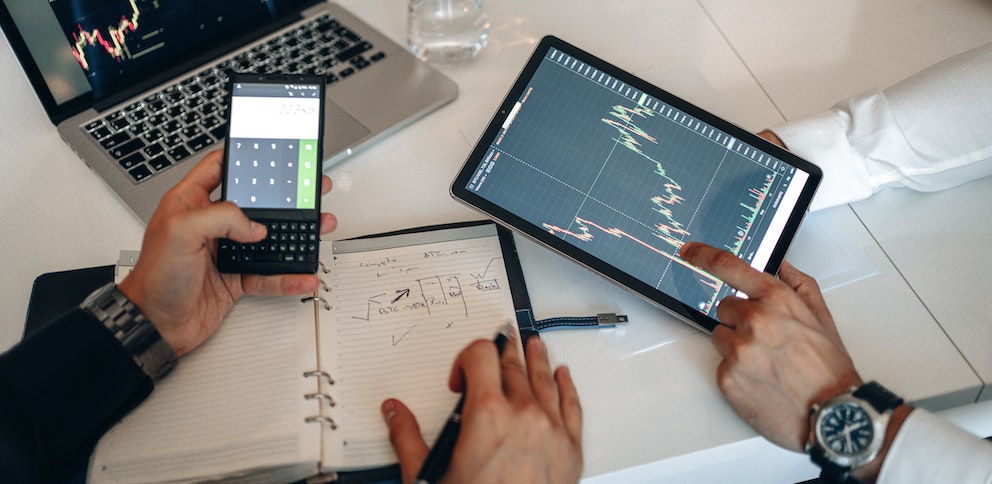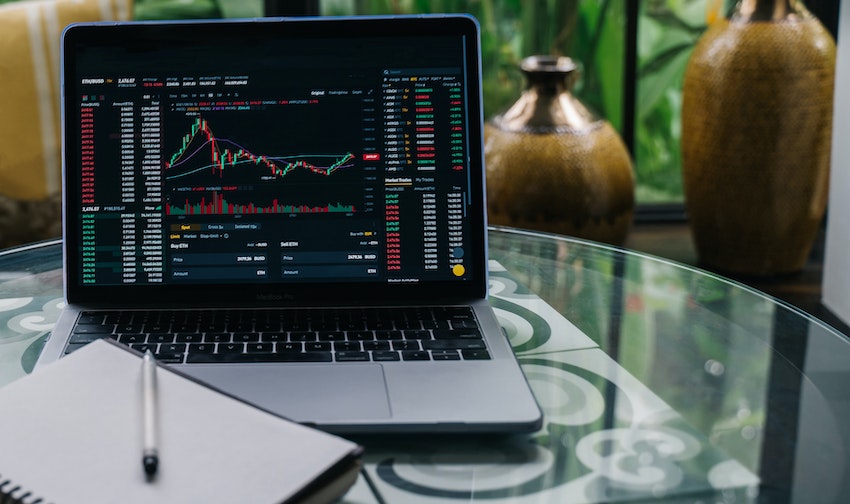
This is Forex Trading
In this guide, we’ll introduce you to forex trading, also called currency trading or FX trading. We’ll cover the basics and explain how forex brokers help you trade currencies. We’ll also share examples of brokers and highlight the key services you should know about.
Forex trading is the process of buying and selling currencies to make money from changes in their prices. It’s the largest financial market in the world, with over $6 trillion worth of currencies traded daily. The most common trades happen between the Euro (EUR) and the US Dollar (USD).
How does forex trading work?
Currencies are traded in pairs, with one being the “base currency” and the other the “quote currency.” The exchange rate shows how much of the quote currency is needed to buy one unit of the base currency. When you trade, you’re “long” (buying) one currency and “short” (selling) the other.
Example 1: In the EUR/SEK pair, you’re buying euros (EUR) and selling Swedish krona (SEK). You’re betting that the krona will lose value compared to the euro.
Example 2: In the EUR/USD pair, EUR is the base currency and USD is the quote currency. If the rate is 1.1200, it means 1 euro costs 1.12 dollars.
What affects forex prices?
Forex prices are influenced by the amount of currency traded by forex brokers each day, which can make some currencies more volatile (large price swings). Other factors also play a big role, such as:
Economic activities like trade and investments
Political events or instability
Inflation and interest rate changes
Global events like recessions or wars
In short, many different factors can impact currency trading, making it important to stay informed about global trends and events.

Why trade forex?
24-Hour Market: The forex market operates 24 hours a day, five days a week, offering countless trading opportunities.
High Liquidity: With its massive daily trading volume, the forex market offers plenty of opportunities for traders to buy and sell currencies easily.
Leverage: Leverage allows traders to control larger positions with a smaller amount of capital, potentially magnifying both profits and losses.
Diverse Market: The forex market offers a wide range of currency pairs to trade, providing opportunities to spread your risk and increase your chances of making consistent profits
What factors can influence exchange rates?
Exchange rates can be affected by a variety of factors, including economic indicators such as GDP, unemployment and interest rates. Political events, international trade relations and geopolitics can also have an impact on exchange rates. The continuous fluctuations in the market create opportunities to exploit price movements through buying and selling.
Common terms in trading
Pip: The smallest unit of measurement for changes in currency exchange rates.
Lot: The standard unit of measurement for currency positions.
Leverage: The amount of borrowed capital used to increase a trading position.
Bid and Ask: The bid price is the price at which a trader can sell a currency, while the ask price is the price at which they can buy a currency.
Spread: The difference between the bid and ask prices.
Margin: The amount of money required to maintain a trading position.
Currency brokers and their role
Forex brokers is the connection between individual traders in the foreign exchange market. They provide platforms, tools, and resources to help you analyze market trends and make informed decisions. The actual trading happens on the broker’s website or platform. For example, brokers like XM offer demo accounts where you can practice trading with virtual money, letting you learn without risking your own funds.
Trading platforms
What else do you need to know about trading platforms? Well, the FX brokers offer trading on several different trading platforms. Here is some information about the most common ones.
MetaTrader 4 (MT4): One of the most widely used platforms, offering a variety of trading tools and indicators.
MetaTrader 5 (MT5): A newer platform with advanced features and capabilities.
cTrader: Known for its speed and efficiency, cTrader is popular among professional traders.
Currency Brokers: A Closer Look
XM, Plus500, AvaTrade and eToro are all well-established and popular brokers in forex trading, providing regulated services and a wide range of technical analysis tools. To see more features about each broker and to sign up, please visit our forex trading brokers section.
Get started at XM
FX Trading strategy
There are many different forex trading strategies, each with its own advantages and disadvantages. Some popular strategies include:
Scalping: Short-term trading that aims to profit from small price movements.
Day trading: Holding positions for a single trading day.
Swing trading: Holding positions for several days or weeks.
Position trading: Holding positions for longer periods, often months or even years.
It is important to be able to master different trading strategies to become successful in Forex Trading. Here you can read more about forex trading strategies.
Conclusion: This is Forex trading
The forex market is a dynamic and fast-moving market where traders can profit from changes in currency rates. Forex brokers play a central role by offering trading platforms and tools to help traders make smarter decisions. Whether you’re new to trading or have experience, forex offers exciting opportunities to explore. At Forex Tradingpoint, we provide a lot of useful information to help you learn the basics and gain the knowledge you need to get started confidently. Visit our section Books about Forex trading where you can read about- and buy top selling books.
Also read: FAQ forex trading
Latest news

Islamic account at XM
Islamic account at XM How Islamic accounts work and how to get started Online currency[…]

How to open a forex trading account in India
How to open a forex trading account in India In recent years, forex trading has[…]

Forex Trading Beginners guide
Beginners guide to forex trading Getting started If you’re new to forex trading, welcome! You’re[…]

